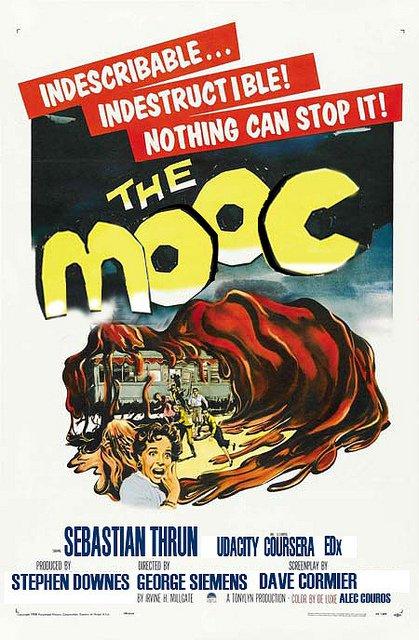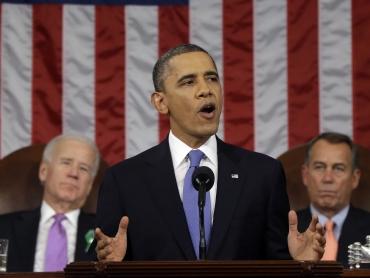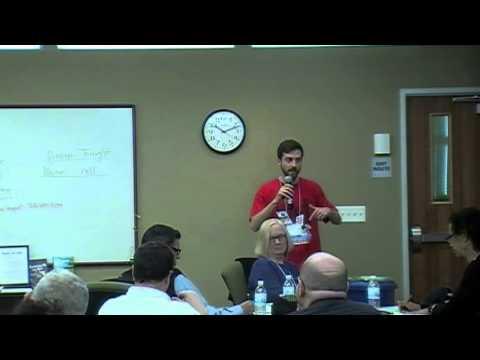On the Issues
Markets, Technology, and the Purpose of Education
Two thoughtful pieces, one recently published in the New York Times and one in Forbes, ask us to step back from our current obsession with “innovation” and “disruption,” business principles and technology in education, and think—just for a moment–about the purpose of education.
Undermining Affordability and Access to Higher Education
A recent report from the New America Foundation highlights one important way access to higher education is closing down for low-income students. Even after Pell grants are factored in, the net cost of college for many of these students is still rising at an unacceptable rate.
Factors driving this trend are evident in the recent history of Baylor University, an institution that has “rebranded” itself, improved its ranking in college ratings, and upped the average SAT score of its students.
Free College – Not Just a Pipe Dream
Even though rising tuition seems the norm at many colleges and universities in the U.S., the idea of a free college degree is not just a pipe dream. As a recent piece from Consumer Reports points out, there are colleges in the US that charge no tuition and some that even provide free room and board for all students.
Adjuncts, Faculty Working Conditions, and Student Learning Conditionss
In “I Used to be a Good Teacher,” Alice Umber contrasts her experiences teaching as a tenure-track professor and then as a contingent, “adjunct” faculty member.
What Helps Students Learn?
The push for doing education on the cheap has led to a number of “innovations” nearly always touted as ways to “do more with less.” But the data on these experiments increasingly present a more complicated picture of their efficacy.
For instance, more and more research suggests that MOOCs, which stormed the higher education scene a couple of years ago, just don’t work well for most students.
Those “Silver Bullets” Again
Who gets hurt by the “silver bullets” so-called reformers offer up for higher education? And why should we care?
For an eloquent answer to these questions, read this op-ed.
The College Affordability Crisis
Real Solutions or Lip Service?
The staggering level of college loan debt in our country finally seems to be getting some long-overdue national attention.
Among the proposals for how to deal with this issue is one called “Pay It Forward,” a program that would substitute after-graduation payments based on earnings for up-front tuition.
The proposal has been attractive to students facing huge loan payments and to conservatives looking to decrease even further the public investment in higher education.
The College Affordability Crisis
What's at Stake?
The enormous ramifications—personal, national, social, and economic—of the college loan crisis are just now being widely and fully discussed. The consequences are serious for us all, whether or not we are paying back college loans for ourselves or our children.
Reinvesting in Higher Ed
A Lesson From Four States
The dramatic increase in college tuition and fees over the past dozen years is justifiably big news. Few doubt that the massive disinvestment of public dollars is responsible for much of the rising cost of higher education, skyrocketing student loan debt, and the massive use of low wage contingent faculty.
What is less well known is that a significant number of states, pushed by broadly based citizen coalitions, have begun bending the cost curve back in the direction of public support for higher ed.
Are American Colleges and Universities Losing Focus?
The 2014 annual report of the American Association of University Professors that deals with the economic status of college professors, is tellingly titled “Losing Focus.” It begins with this worrisome statement:
Even as colleges and universities have become the focus of increased attention from the general public and policy makers alike, these institutions themselves seem to have lost their focus on a mission of preparing an informed citizenry for participation in democracy and expanding knowledge for the benefit of all.
Higher Ed “Reform”
The Price Paid by the Next Generation of Students and Professors
The increasing awareness of—and outrage about–the size of the debt crushing college graduates is, we must hope, a sign that meaningful action to address it may be possible.
The numbers alone are staggering. According to recent reports, the average student debt for graduates with bachelor’s degrees is now $29,400—roughly 80% of a young person’s average income in this country. (See more at http://www.edcentral.org/student-debt-review/.)
What’s College For?
In the media and in the halls of our legislatures, the talk these days about the purpose of a college education seems to focus almost exclusively on its value in expanding a person’s employment opportunities. It’s a perspective that shapes many aspects of higher education policy—priorities for funding, standards for institutions, curriculum, and many other critical issues.
And it’s a perspective so dominant that it crowds out discussion of other values associated with higher education.
Support for Free Public Higher Education
Sign the Petition
Earlier this year, the Campaign for the Future of Higher Education released a working paper, Making All Public Higher Education Free.. In that paper the author, Bob Samuels, demonstrated why such a proposal is both realistic and smart.
The idea seems to be gaining support.
As we reported in an “On the Issues” posting in June, Germany has returned to free tuition in its colleges and universities, after a brief experiment with charging tuition.
UIC United Faculty Strike Illustrates Challenges Facing Public Higher Education Nationwide
The Campaign for the Future of Higher Education stands in solidarity with the University of Illinois at Chicago United Faculty, a joint affiliate of AAUP and AFT, who conducted a two-day strike, February 18 and February 19 to pressure the administration to bargain a fair first contract.
Higher Education Misconceived
In a recent article, Derek Bok, former President of Harvard University, pinpointed several misconceptions about higher education that are driving our national discussion and policy.
He tackles, for instance, the almost exclusive emphasis on college as an agent of economic growth that has led to President Obama’s strong push for more college degrees and to a variety of “completion” agendas. While these goals and the measures of success they have spawned seem self-evidently valuable, Bok argues that they are warping our conception of higher education in dangerous ways.
“Ivory Tower”? Think Again
In November, the Democratic staff of the House Committee on Education and Workforce launched an electronic forum to gather comments from contingent faculty members about their working conditions and the effect of those working conditions on students.
The recently-released report on the results of that effort, titled “The Just-In-Time Professor,” tells a shameful tale about the real lives of most faculty members in U.S. colleges and universities that should put to rest the stereotypes of faculty as Ivory Tower denizens with their elbow patches, pipes, and summers in Europe.
Graduate Students and the Future of Higher Education
Today’s graduate students are caught in the swirl of several current trends that, if unchanged, lead toward a difficult future for them and for higher education.
As students, they shoulder their share of the growing $1 billion in student loan debt and the daunting problems that burden carries. (In fact, as some colleges have worked to limit increases in undergraduate tuition, they have often made up the difference through larger increases in graduation tuition. Reduced financial aid for graduate students adds any more to their debt load.)
Unintended Consequences in the Race to Improve College Completion Rates
As happens too often in higher education these days, the recent push to increase college completion rates shows how laudable goals can become problematic when pursued in narrow, rigid ways. Who wouldn’t want to increase the numbers of college graduates? The goal is certainly a no-brainer.
However, a report to be released next month by the National Student Research Clearinghouse Center showing unchanged college completion rates over the last year could encourage a policy push in the wrong direction.
A National Forum for Contingent Faculty
Kudos to Rep. George Miller (D-Calif.), a senior member of the House Education and the Workforce Committee, for his recent call to investigate what the increasing use of so-called “adjunct” or contingent faculty means for these faculty members and for the learning conditions of their students.
His comments certainly hit the mark:
What’s Missing in Ohio’s Affordability Plan?
Ohio Governor John Kasich’s recent appointment of Gordon Gee, former President of Ohio State University, to head the group tackling college affordability in Ohio highlights a troublesome trend in higher education today.
The End of History?
Many colleges and universities around the country are cutting programs (or have already done so) that just a few years ago were considered at the core of any college or university.
The case of one campus highlights the price paid for these cuts.
Officials at Elizabeth City State University, a historically black college in North Carolina, recently announced plans to cut several programs, including history.
CFHE testimony at the U.S. Dept. of Education’s hearing on President Obama’s plan for higher education
Campaign for the Future of Higher Education
Testimony at the U.S. Department of Education’s hearing
on President Obama’s plan for higher education
Wednesday, November 6, 2013
California State University, Dominguez Hills
Good afternoon. My name is Vivian Price, and I am speaking today representing the Campaign for the Future of Higher Education. We thank the President and the Department of Education for holding these hearings where such a variety of voices can be heard.
The Perfect Recipe for Destroying Public Higher Education?
If you sometimes feel like many of the higher ed “reforms” being pushed today are leading to the demise of public colleges, you may be right.
And if you are frustrated that few voices are being raised in alarm, Steven Ward’s piece, “A Machiavellian Guide to Destroying Public Universities in 12 Easy Steps,” may help you understand the reason for this inertia.
“Pay It Forward”
The Oregon legislature recently passed a law requiring the state to study a “Pay It Forward” model for higher education. Under the plan, students could attend college with no upfront costs but with a payback over 24 years amounting to 3% of their annual earnings. The state would then use that money to fund costs for students in the future.
With tuition through the roof, it is understandable why students might support a program that promises no upfront costs.
American Higher Education: Separate and Unequal?
Policy Institute Finds Higher Ed Complicit in 2-Tier System Based on Race/Ethnicity
A recent report, “Separate & Unequal,” released by the Georgetown University Public Policy Institute, is introduced with a provocative statement: “The higher education system is more and more complicit as a passive agent in the systematic reproduction of white racial privilege across generations.”
The study goes on to detail ways in which the United States is moving toward an entrenched two-tiered higher education system based on race/ethnicity.
“Back to School” Time to Ask: Are Our Universities Endangered?
The beginning of a new academic year–before nitty-gritty details of enrollment numbers, exam scores, and graduation rates lower our horizons and our sights–is a chance to think about what college really means for our students and for society.
Response to President Obama’s August 22, 2013 Plan for Higher Education
We urge President Obama to discuss his plan for higher education with faculty, staff, students and parents.
A White House fact sheet released in support of President Obama’s plan notes that “declining state funding has been the biggest reason for rising tuition at public institutions.” Any plan to rescue college affordability simply must begin by addressing such harsh facts as these:
CFHE Responds to “Dead or Dormant” by Phil Hill and Dean Florez
State law to open public colleges & universities to for-profit companies? Not a good idea.
Despite the praise heaped on California Senate Bill 520 by Phil Hill and Dean Florez in a recent panegyric published in Inside Higher Ed, the bill was not the right answer for California’s higher education access woes; and it is a poor model for other states to emulate.
Who’s Driving American Higher Education Policy?
Big $$$ Foundations Are Driving The Policy Train
We like to think experts who weigh in on the direction of American higher education are steeped in research about what works and have real-world experience with actual students. We like to assume that elected officials, who are accountable to the public, listen to those experts—particularly those who labor in the educational “trenches”—when they make their decisions.
Udacity/San Jose State University MOOC Experiment Flops
A partnership between San Jose University and Udacity, a for-profit MOOC provider, to offer several MOOCs got off to a rousing start at a 45-minute news conference in January. People there included the governor of California, the president of San Jose State University, and Sebastian Thrun, CEO of Udacity. (See a
Letter in Support of City College of San Francisco
Alisa Messer
President
AFT Local 2121
Dear Alisa:
The “Business Model” for Higher Education
It’s almost a truism in many places today that colleges and universities ought to be run more like businesses. But should they? What do people mean when they say this?
The case of outgoing Ohio State University President, E. Gordon Gee, gives one example of how that model can play out on college campuses.
Adjunct Faculty Need Fair Treatment in Implementation of the New Federal Healthcare Law
When the new healthcare law, the Patient Protection and Affordable Care Act, takes effect in 2014, large employers will be required to provide healthcare benefits to employees who work over 30 hours a week.
Concerns are already being raised that unscrupulous employers will simply reduce the hours of employees to get around this law—delivering a double-whammy to workers in the form of reduced pay and denied healthcare coverage.
CHFE Letter to Committee on Institution Cooperation
June 24, 2013
Committee on Institutional Cooperation
1819 South Neil Street, Suite D
Champaign, IL 61820-7271
Dear Members of the Committee on Institutional Cooperation:
We read with interest your recent paper, “CIC Online Learning Collaboration: A Vision and Framework,” and the Inside Higher Ed coverage of it.
It is good that a group of chief academic officers have foregrounded educational considerations and called for careful deliberation in the area of MOOCs and distance education.
MOOCs: Are They About Access or Money?
If you read the news, listen to legislators, or watch TED talks, you might think MOOCs (Massive Open Online Courses) are just about providing free access to high-quality courses for anyone who wants to take them.
Moody’s Investment Services clearly has a different idea. Its September 12, 2012 report, titled “Shifting Ground: Technology Begins to Alter Centuries-Old Business Model for Universities,” should be mandatory reading for everyone who thinks MOOCs and online education are really about student access and educational equity.
Who Says College Can’t be Free?
After a brief experiment in charging tuition, Germany—the strongest economy in Europe and one of the strongest in the world–is abolishing fees at its colleges and universities.
Why?
As quoted in a recent article in Inside Higher Ed, supporters of the move argue that “’higher education is a human right’” and should be “’equally accessible to all, on the basis of capacity, by every appropriate means, and in particular by the progressive introduction of free education.’”
More Bad Ideas on Higher Education from Florida
A bill was recently introduced in the Florida legislature that would bypass the established system of accreditation and allow local state officials to accredit MOOCs and other online courses, including those from unaccredited for-profit providers. A similar bill introduced in the California legislature was reported on in “On the Issues” on March 29, 2013.
Who Needs a Liberal Education These Days?
Anyone who wants a job, it seems. According to a recent survey of employers by the Association of American Colleges and Universities reported in It Takes More Than a Major: Employer Priorities for College Learning and Student Success, employers want a broadly educated graduate rather than one with the kind of narrow job-specific skills so often touted in current discussions of “workforce preparation.”
Consider these findings from the survey summary:
The Cold Facts about Higher Education and Contingent Faculty Appointments
Although the details are shameful, it’s good to see the mainstream press publicizing the facts about higher education faculty appointments and compensation. A recent NBC report highlights these facts from the most recent annual survey on faculty appointments and compensation conducted by the American Association of University Professors: more than 3 out of 4 faculty members in American higher education today work in low-paid, insecure (often part-time) appointments that usually offer no health or other benefits. The median pay in these positions (often called “adjunct”
CFHE Statement on California Senate Bill 520
The Campaign for the Future of Higher Education, a national grass-roots coalition of faculty and staff higher education organizations, is deeply concerned about California Senate Bill 520 and what it could mean, if adopted, for the future of public higher education in California.
A well-intended but misguided effort to restore access that has been lost as a result of slashed funding for California’s public colleges and universities, this bill would hand off up to 50 courses in California’s public colleges and universities to for-profit online education providers.
New Years Times Nails it Again
Kudos to the New York Times for another important editorial on higher education. This one, “Resurrecting California’s Public Universities,” chides the California state legislature for slashing higher education funding and then pushing online courses as the “solution” to reduced access.
Here’s what they conclude:
The Real Cost of Cuts to Higher Education
The title of a recent report by the Center on Budget and Policy Priorities says it all: “Recent Deep State Higher Education Cuts May Harm Students and the Economy for Years to Come.” The report provides important details about the depth and breadth of recent cuts around the country.
For instance, since 2008, according to the report,
State spending nationwide is down $2,353 or 28 percent per student..
CFHE Statement on the Affordable Care Act and Higher Education Faculty
The passage of the Affordable Care Act (ACA) was an historic extension of the basic right of healthcare to all. It was a recognition that access to medical care, like access to education, is fundamental to a just society.
Tax Day Flier 2013
Download the flyer:
- CFHE Tax Day flyer PDF version
- CFHE Tax Day flyer WORD version (Front side)
- CFHE Tax Day flyer WORD version (Back Side)
Ways To Use The Flyer
Here is a recap of some of ways to use the flyers…
MOOCs, Pearson, and Profits
MOOCs may prove to be another “bubble” like the online for-profit universities are proving to be, but their widespread adoption could be a much bigger threat to higher education than the University of Phoenix and Kaplan University ever were or will be.
“A Massively Bad Idea from California”
Public policy can sometimes be moved with great speed by a dangerous combination of money and trendiness, and right now MOOCs are trending with the help of some deep-pocketed backers. This can lead to unintended consequences. Such may be the case with a bill pending before the California legislature that would funnel hundreds of thousands of community college students (and others) into MOOCs (Massive Open On-line Classes).
“Teaching ‘By Hand’ in the Digital Age
Amid all that enthusiasm for MOOCs these days, it’s important to remember the educational importance of interaction between individual professors and students-and not just for students at elite universities.
Accreditation Woes for the University of Phoenix
Recent reports that the University of Phoenix may be placed on probation by the accrediting body, the Higher Learning Commission of the North Central Association of Colleges and Schools, raise yet one more serious concern about an institution that not so long ago was hailed as the “wave of the future.”
New York Times Editorial: The Trouble with Online College
A recent editorial in the New York Times reviews some important research on online education in colleges and raises some serious questions about the current rapid shift to more—and bigger–online courses.
Research by the Community College Research Center suggests that community college students are more likely to fail or drop out in online courses– and that could mean tuition dollars spent and debt racked up for nothing.
Are Politics Driving Change in Higher Education
Technology is on the verge of changing higher education in unprecedented ways. The very definable alternatives provided by the online for-profit institutions have given way to the much less easily definable alternatives represented in the development of MOOCs, the shift from grade-based to competency-based credit, and the gradual encroachment of corporate “educational advisers” into the most profitable elements of our curricula.
President Obama’s State of the Union Message
In his 2013 State of the Union message, President Obama rightly emphasized the importance of moving beyond an “austerity agenda” for our country and of recognizing that we cannot simply cut our way to prosperity.
The president has put investment on the national agenda– in research and innovation, in pre-school education, and in various aspects of our physical infrastructure (e.g, roads, bridges, bricks and mortar in schools).
Unfortunately, the President did not put new financial mechanisms for reinvesting in public higher education on the table.
CHFE Video: Getting a Union Ready to Struggly
Leaders of faculty, students, and higher education staff from 14 states and national organizations hear Jackson Potter of the Chicago Teachers Union describe the revitalization of his union to take on attacks against teachers and public education.
Faculty Speak Out: Congress takes up debate over cuts to student financial aid at a devastating moment
The Campaign for the Future of Higher Education held a national meeting last weekend in Michigan, where it discussed action plans to save the nation’s system of higher education for future generations.
CFHE adopted the following statement on federal student financial aid:
Demand for college is at an all-time high and student debt has reached a devastating one trillion dollars. Despite this, Congress is debating whether to cut student aid.
We Are All Ohio
CFHE Support for Public Employees in Ohio
An injury to one is an injury to all. So, too, with a victory for one. We are ALL Ohio.
The Campaign for the Future of Higher Education (CFHE) applauds the people of Ohio for:
CHFE Supports Occupy Wall Street Movement
The Campaign for the Future of Higher Education works in support of and in solidarity with Occupy Wall Street (OWS). We are and we educate the 99%.
Just as OWS is decrying the growing, vast gap between the mega-rich and the public, the CFHE decries the growing gap between college opportunities enjoyed by the wealthiest versus the rest of us. College should not be rationed by income, ethnicity, or immigrant status. All who can benefit have a right to affordable, quality higher education.





